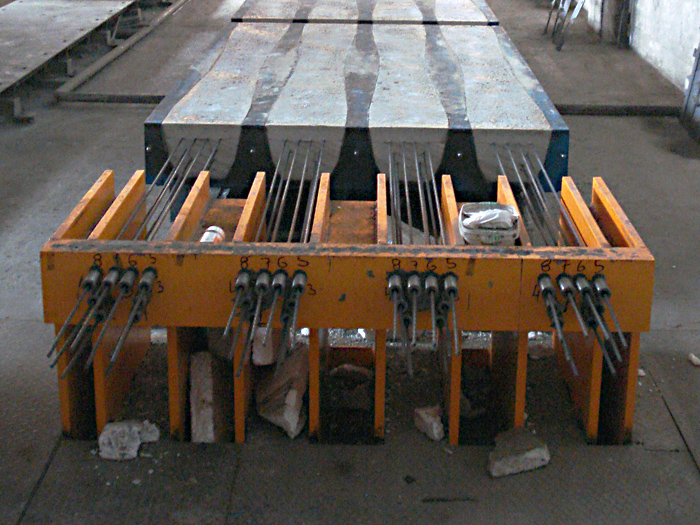Manufacturers in the construction industry
A manufacturer is an organisation or business that produces goods to sell them to a customer. Manufacturers transform raw materials, components, assemblies, and so on, into finished products, often involving processes organised into a production line.
Manufactured products are commonly made on a large scale before being distributed to customers, wholesalers, distributors, retailers and so on.
Manufacturing operations tend to utilise one of the following types of production:
- Make-to-stock (MTS): Goods are produced by predicting the market and producing regardless of orders being received. There is the risk that producing too much will result in needing to sell any surplus at a loss, whereas producing too little will result in not selling enough to maximise profit or even cover operating costs.
- Make-to-order (MTO): Goods are produced when orders are received, making it easier to control inventory. However, this can result in longer waiting times for clients, and a steady stream of orders is required otherwise production will stop.
- Make-to-assemble (MTA): Component parts are produced in anticipation of orders for assembly. This means the manufacturer is ready to fulfil orders, but it can result in a backlog of parts that are waiting to be used if demand is slower than anticipated.
Testing and certification can be used to verify quality.
Manufacturers must adhere to certain standards and regulations when producing their goods. For example, the Eco-Design for Energy-Related Products Regulations 2010 requires manufacturers to achieve minimum standards for the amount of energy regulated products consume. A declaration of conformity must be drawn up by the manufacturer or importer and the CE mark applied.
In the construction industry, manufacturers are often referred to as suppliers. For more information see: Suppliers.
NB The Code for Construction Product Information, Version 1.0, published by CCPI in September 2021 defines a manufacturer as: “any natural or legal person who manufactures a Construction Product, or has a Construction Product designed or manufactured and places it on the market under their own name or trademark”.
Designing Buildings Wiki has a range of articles relating to manufacturing, including:
- 3D printing in construction.
- Advanced manufacturing.
- British Standards Institution BSI.
- Buildability in construction.
- Building information modelling and its effect on computer aided manufacture in the UK construction industry.
- Circular economy.
- Computer aided manufacturing CAM.
- Demand for Off-Site Construction Continues to Increase in the UK’s Manufacturing Sector.
- How Computer Aided Manufacturing is Changing the World.
- Intelligent building management systems IBMS.
- Intermediate product.
- Kitemark.
- Lean construction.
- Life cycle assessment.
- Manufacturing better buildings.
- Mean lean green.
- Modern methods of construction.
- Offsite manufacturing.
- Offsite manufacturing and standardised design.
- Prefabrication.
- Product transparency declaration.
- Purchase orders.
- Quality control for construction works.
- Virtual reality and manufacturing.
[edit] Related articles on Designing Buildings Wiki
Featured articles and news
British architecture 1919–39. Book review.
Conservation of listed prefabs in Moseley.
Energy industry calls for urgent reform.
Heritage staff wellbeing at work survey.
A five minute introduction.
50th Golden anniversary ECA Edmundson apprentice award
Showcasing the very best electrotechnical and engineering services for half a century.
Welsh government consults on HRBs and reg changes
Seeking feedback on a new regulatory regime and a broad range of issues.
CIOB Client Guide (2nd edition) March 2025
Free download covering statutory dutyholder roles under the Building Safety Act and much more.
AI and automation in 3D modelling and spatial design
Can almost half of design development tasks be automated?
Minister quizzed, as responsibility transfers to MHCLG and BSR publishes new building control guidance.
UK environmental regulations reform 2025
Amid wider new approaches to ensure regulators and regulation support growth.
The maintenance challenge of tenements.
BSRIA Statutory Compliance Inspection Checklist
BG80/2025 now significantly updated to include requirements related to important changes in legislation.
Shortlist for the 2025 Roofscape Design Awards
Talent and innovation showcase announcement from the trussed rafter industry.
OpenUSD possibilities: Look before you leap
Being ready for the OpenUSD solutions set to transform architecture and design.
Global Asbestos Awareness Week 2025
Highlighting the continuing threat to trades persons.
Retrofit of Buildings, a CIOB Technical Publication
Now available in Arabic and Chinese as well as English.
























